Christianity: A Cause of Modern Science
Christianity: A Cause of Modern Science
Christianity: A Cause of Modern Science
- No tags were found...
You also want an ePaper? Increase the reach of your titles
YUMPU automatically turns print PDFs into web optimized ePapers that Google loves.
26(1483-1546) had anti-rationalistic tendencies, and attacked the Copernican view<strong>of</strong> the universe. John Calvin (1509-1564), whose Institutes <strong>of</strong> the ChristianReligion systematically set the doctrinal agenda <strong>of</strong> many Protestants, includingthe Puritans, was not enthusiastic over many <strong>of</strong> the scientific discoveries <strong>of</strong> hisday. What this shows is the unintended consequences <strong>of</strong> the new religiousvalues <strong>of</strong> Protestantism. Interestingly, even as the Counter-Reformation wasdamaging Catholic science (the Inquisition's effort against Galileo, for instance),Protestant science was taking <strong>of</strong>f, helping to make up for the slack. Although wehave only briefly surveyed the Merton thesis, partly because it overlaps theDuhem-Jaki thesis in pointing to religion as positively influencing science,although by a rather different means. However, it helps to show when piousPuritan scientists discussed thinking God's thoughts after Him and trying toknow God's attributes better through studying His creation (compare Romans1:20), they were not saying this as a rationalization to justify their activities, butreally meant it.WHEN CHRISTIANITY GETS BLAMED FOR SCIENCE: THEENVIRONMENTALIST CRITIQUEA supreme irony is that many environmentalists publicly concede the Christianorigins <strong>of</strong> science, but in a spirit <strong>of</strong> condemnation, since various ecologicaldisasters get blamed on the Bible's injunctions to multiply and subdue the earth.The reversion to ideas rejected by our medieval ancestors--in the "New" Agemovement--involves reviving the ideas <strong>of</strong> eastern mysticism as found inHinduism and Buddhism, and dressing them in some western garb. Of course,the Unity School <strong>of</strong> <strong>Christianity</strong>, "New Thought," and Christian <strong>Science</strong> havebeen at this for decades going into the last century. The religious outlook <strong>of</strong>Transcedentalist Ralph Waldo Emerson (1803-1882), American poet andessayist, was unquestionably pantheistic. Similarly, the United Nations'Environmental Programme's Global Biodiversity Assessment, some 1,140pages long, explicitly condemns the Western (read Christian) worldview asbeing "characterized by the denial <strong>of</strong> sacred attributes in nature, a characteristicthat has its roots in Greek philosophy [a basically false statement, as shownabove--they weren't familiar with Aristotle's On the Heavens evidently], and




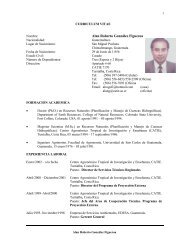
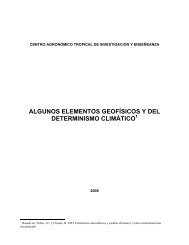
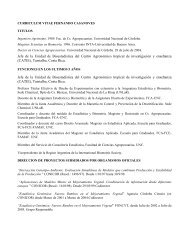
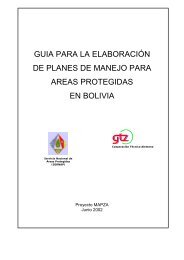
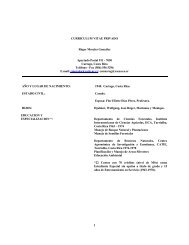
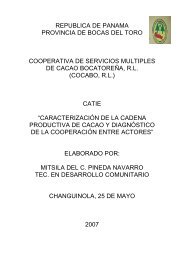
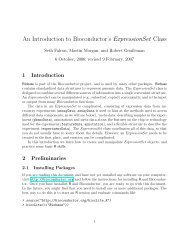
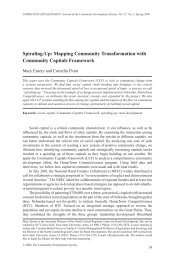

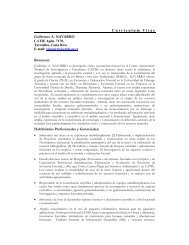

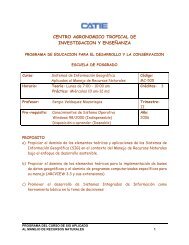
![Tratamientos y MD_2009 [Modo de compatibilidad].pdf - Catie](https://img.yumpu.com/49175499/1/190x134/tratamientos-y-md-2009-modo-de-compatibilidadpdf-catie.jpg?quality=85)